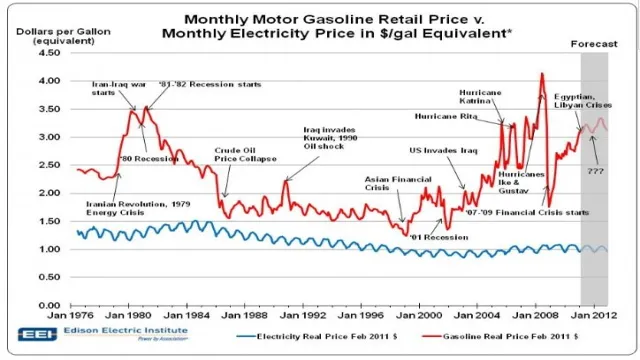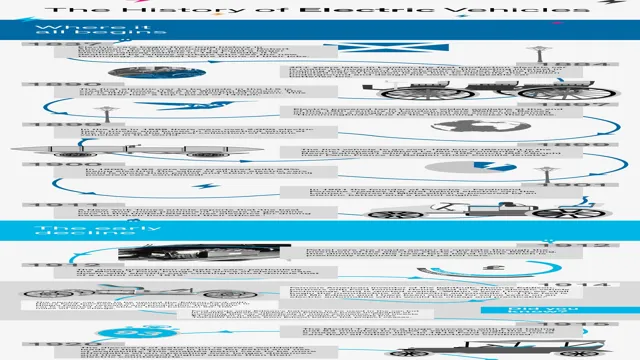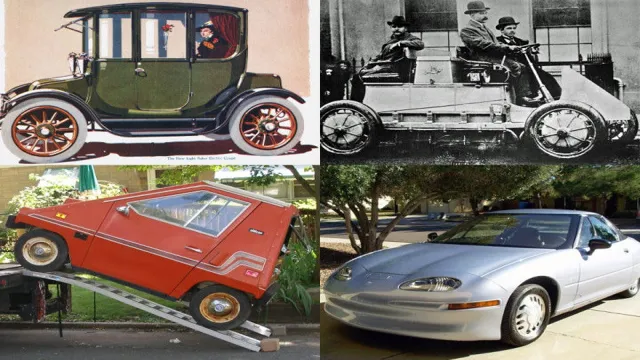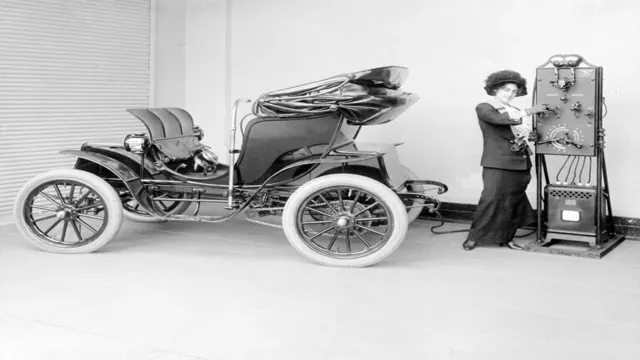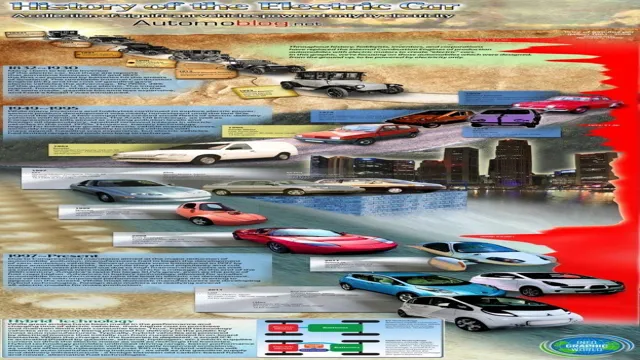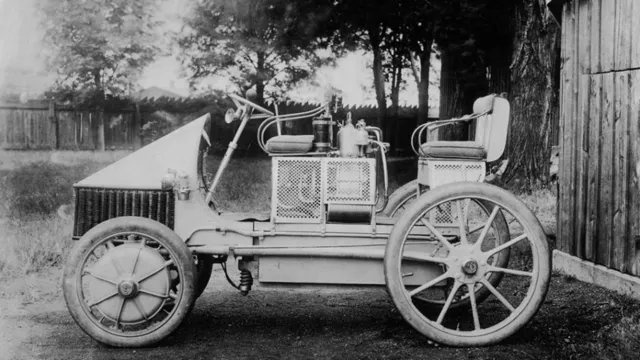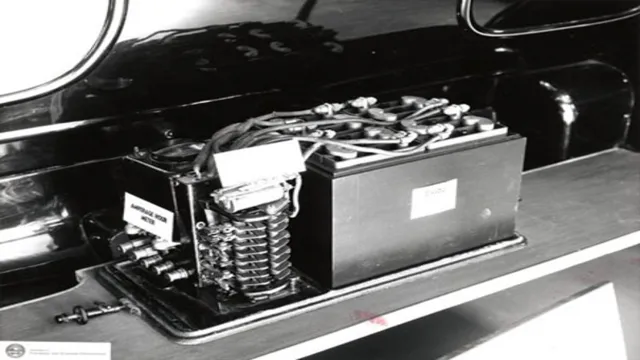Revving Up: Tracing the Fascinating Evolution of Gas and Electric Cars throughout History
Have you ever stopped to consider the evolution of cars and how they’ve progressed into the modern era? Gone are the days of the horse and carriage and here to stay are gas and electric cars. But where did it all start? Way back in 1832, Scottish inventor Robert Anderson created the first electric car. It took another 50 years before gas-powered cars were invented and began to hit the streets, eventually becoming the norm.
However, with growing concerns of climate change, the electric car is making a comeback. In this blog, we’ll dive into the history of gas and electric cars, explore their differences, and discuss why a shift towards electric cars could be the future of transportation.
Early Days of Gasoline Cars
Gas vs electric car history is a long and fascinating one that spans back to the early days of the automobile industry. Gasoline-powered engines were the norm in the early 1900s, with electric vehicles being more of a novelty item. Gasoline cars had the advantage of longer range and faster speeds, while electric cars were seen as more reliable and easier to operate.
However, with the mass production of gasoline cars, their prices began to drop significantly, making them far more accessible to the general public. Electric cars, on the other hand, struggled to compete in terms of cost and convenience, leading to a decline in their popularity. Despite this, electric vehicles have made a resurgence in recent years, with advances in technology making them more efficient, affordable, and appealing to modern drivers.
Today, gas vs electric car history continues to evolve, with each type of vehicle offering unique benefits and challenges.
Disadvantages of the First Gasoline Cars
Gasoline cars revolutionized the way people traveled in the early 20th century. However, the first gasoline cars also had their drawbacks. One major disadvantage was their tendency to break down frequently.
The early cars were not built to last and often required extensive repairs. They were also quite expensive and only the wealthy could afford them. Another disadvantage was the lack of safety features, which made them dangerous to operate.
The open designs of the vehicles provided little protection in the event of an accident. Additionally, these early gasoline cars were not very fuel-efficient. They consumed a lot of gasoline and had a limited range.
Despite these disadvantages, the first gasoline cars paved the way for future advancements in the automotive industry, leading to the development of modern automobiles with better safety features, greater fuel efficiency, and lower costs.
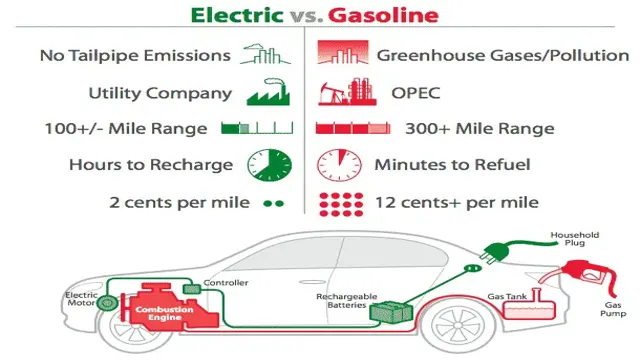
Introduction of Electric Cars
As we look back at the history of electric cars, it’s impossible to ignore the early days of gasoline cars. These vehicles were first introduced in the late 1800s and quickly became popular due to their convenience and speed. However, they were also notorious for their noxious fumes and constant need for refueling.
At the same time, engineers were also experimenting with electric vehicles, which were seen as a cleaner and more efficient alternative to gasoline cars. While the initial range of electric cars was limited, they were still favored by many drivers who preferred their quiet, smooth operation and low maintenance costs. Nonetheless, electric cars still had a long way to go before they could compete with gasoline cars on a mass scale, and it wasn’t until the turn of the 21st century that electric cars began to make a comeback.
Today, with advances in battery technology and a growing emphasis on sustainability, electric cars are once again gaining popularity as a cleaner, more efficient mode of transportation.
Gasoline Cars Take Over
In the early days of automobiles, gasoline-powered cars rapidly took over due to their ability to travel longer distances and faster speeds compared to electric cars. Gasoline cars also had the advantage of being easier to refuel, as gas stations emerged all over the world. However, electric cars had their own advantages, such as being superior in terms of reliability and ease of use.
Although initially popular, electric cars slowly lost their status as gasoline cars continued to improve in terms of speed and range. This led to a decline in electric car use, with gasoline-powered cars becoming the norm in the automotive industry. But now, as the world is moving towards sustainable and environmentally-friendly transportation, electric cars are experiencing a resurgence.
With the technology available today, electric cars can travel long distances and charge quickly, making them a competitive alternative to traditional gasoline cars. It’s fascinating to see how the gas vs. electric car history has shifted over the years, and it will be interesting to see what the future holds for these two modes of transportation.
Mass Production of Gasoline Cars
Gasoline cars took over the automotive industry after mass production techniques were established in the early 1900s. Henry Ford famously introduced the assembly line in 1913, which allowed his factory to produce a Model T every 24 seconds. This breakthrough led to increased productivity and lowered costs, making cars accessible to the average person for the first time.
Gasoline cars quickly became the preferred mode of transportation due to their convenience and affordability. However, this development came with environmental consequences that we continue to face today. As we look towards the future, it’s important to consider alternative modes of transportation that are more eco-friendly and sustainable for the long-term.
Development of Gasoline Refining
Gasoline refining has been an integral part of the automotive industry since the gasoline-powered car took over in the early 20th century. In the beginning, gasoline was obtained from crude oil by simple distillation, resulting in a low-quality product with insufficient combustion properties. However, as the demand for gasoline grew, more advanced refining techniques were developed to produce a higher quality product.
This led to the development of the catalytic cracker, which enabled refiners to produce more gasoline from each barrel of crude oil. Today, refineries continue to improve their processes to meet the increasingly stringent standards for gasoline quality and to produce more environmentally friendly fuels. These advancements have made gasoline more efficient, less polluting, and have improved the overall performance of gasoline-powered vehicles.
As our reliance on gasoline-powered vehicles continues to grow, so too will the need for refining technology to keep pace with the demands of our modern society.
Gasoline Car Benefits Over Electric Cars
Gasoline cars have been around for over a century and have withstood the test of time. They have a number of benefits that electric cars cannot match. For one, gasoline cars have a longer driving range, with the ability to travel long distances without requiring a recharge.
Additionally, gasoline cars are more readily available and can be serviced almost anywhere. While electric charging stations are growing in number, they are still not as common as gas stations. Furthermore, gasoline cars have a lower upfront cost than electric cars, making them more accessible to a wider range of consumers.
Gasoline cars also have a simpler technology, which makes it easier and cheaper to repair. It may seem like electric cars are taking over, but gasoline cars still have many benefits that make them a better option for many drivers.
Electric Cars Make a Comeback
Gas versus electric car history is a fascinating tale of innovation and progress. Gasoline-powered vehicles have been the norm for over a century, dominating the market due to their ease of use and distribution network. However, with the rise of environmental concerns and technological advancements, electric cars have made a comeback.
Electric cars run on batteries instead of gasoline, which means they don’t emit harmful emissions and contribute to the reduction of carbon footprint. They’re efficient, cost-effective, and easy to maintain, making them a sustainable alternative to traditional gas-powered vehicles. With the increasing availability of electric charging stations and the growing popularity of renewable energy sources, it is clear that electric cars will play a significant role in the future of transportation.
The gas versus electric car history continues to evolve, and it’s exciting to see where it will take us next.
Electric Cars in the 1970s and 80s
Electric cars have been around for decades, with varying degrees of success. In the 1970s and 80s, electric cars were beginning to gain traction, with manufacturers like General Motors producing a limited number of electric vehicles (EVs) for testing purposes. However, these early electric cars had limited ranges and were more expensive than their gas-powered counterparts, making them unappealing to consumers.
Fast-forward to today, and electric cars are starting to make a comeback. With advancements in battery technology and a push for more environmentally friendly options, electric cars are becoming more practical and affordable for everyday use. In fact, major car manufacturers like Tesla, BMW, and Nissan are now producing EVs with ranges that rival their gas-powered counterparts.
It’s exciting to see electric cars gaining popularity again, and it’s clear that they have the potential to make a significant impact on the future of transportation.
Modern Advancements in Electric Car Technology
Electric Cars Electric cars are making a comeback, and modern advancements in technology are playing a significant role in their resurgence. With a growing push for environmentally-friendly and sustainable transportation options, electric cars have become an attractive alternative to traditional, gasoline-powered vehicles. Modern electric cars have impressive ranges, with some models able to travel over 300 miles on a single charge.
Additionally, charging stations are becoming more prevalent, making it easier for electric car owners to stay charged while on the go. Electric cars also offer instant torque, providing impressive acceleration and a smooth driving experience. They are also quieter than traditional cars, providing a more serene driving experience.
The advancements in electric car technology are paving the way for a cleaner, more sustainable future.
The Future of Gas vs Electric Cars
Gas vs electric car history is a fascinating topic that spans over a century. Gasoline-powered cars were the norm for the majority of this period, with electric cars gaining popularity in the late 19th and early 20th centuries. However, they fell out of favor due to the lower cost and greater convenience of gasoline.
In recent years, the tide has started to turn once again with the increasing demand for electric cars due to environmental concerns and advances in technology. Governments around the world are pushing for the adoption of electric vehicles, offering incentives to buyers and investing in infrastructure. Despite this, there are still concerns around the feasibility of electric cars as a mainstream option.
Factors such as limited range, long charging times, and the availability of charging stations are often cited as barriers to adoption. However, with ongoing technological innovation and increased investment in infrastructure, it is likely that these issues will be resolved in the years to come. Ultimately, the future of gas vs electric cars is not a clear-cut decision and will depend on a variety of factors such as individual preferences, government incentives, and technological advancements.
However, it is clear that electric cars have the potential to be a significant player in the transportation industry in the years to come.
Conclusion
In the epic battle of gas versus electric cars, the perfect winner has yet to be crowned. Gasoline engines have dominated the automotive industry for over a century, offering speed, power, and a range that electric cars couldn’t match. However, in recent times, the tables have turned as electric cars have become more advanced, offering a powerful and sustainable alternative that has taken the world by storm.
It’s a showdown that has defined the history of the automobile, with each side vying for the title of “best,” but it’s clear that there’s no winner yet. So whether you’re a petrolhead or an electric evangelist, the debate rages on, and the future of transportation is still up for grabs. Who knows which technology will come out on top, but one thing is for sure – the journey towards a greener, cleaner future is just beginning.
“
FAQs
What is the history of gas cars?
Gasoline-powered cars have been around since the late 1800s, with the first successful gasoline-powered car made by Karl Benz in 1885.
When did electric cars start being produced?
Electric cars were actually more common than gasoline cars in the early 1900s, but as gas became cheaper, electric cars fell out of favor. However, production of electric cars picked up in the early 2000s.
Why did gasoline cars become more popular than electric cars?
Gasoline cars became more popular due to their longer range and ease of refueling. Electric cars had limited range and required longer charging times.
What advancements have been made in electric cars compared to gas cars?
Electric cars have made significant advancements in recent years, such as improved battery technology and faster charging times. Additionally, electric cars have lower emissions and are often more energy-efficient than gas cars.
